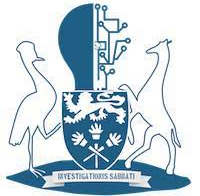CONFERENCE CONCEPT NOTE
Introduction
Complex global dynamics are multifaceted issues requiring coordinated efforts across national boundaries for effective solutions. The world is increasingly characterized by high levels of uncertainty and interdependence, with these dynamics having wide-ranging effects on global systems and human societies. The dynamics are seen in the form of climate change, pandemics such as COVID-19, human trafficking, gender-based violence, poverty, wars and conflicts, forced migrations, environmental degradation and pollution, genocides, terrorism, food insecurity, homelessness, drugs and substance abuse, educational and income inequality, cybercrimes, debt crises, and disasters. Equally, these impediments are increasingly interconnected and constantly evolving. These happenings often involve long time lags between actions and effects, making it difficult to assess the impact of interventions through conventional feedback mechanisms. Furthermore, the resulting dynamics have a high potential to exacerbate existing inequalities, disrupt livelihoods, and strain resources, particularly in developing countries. Addressing them requires interdisciplinary approaches and collaborative efforts. Investing in Monitoring and Evaluation (M&E) systems and resources is crucial for tackling these dynamics. M&E provides a robust platform for evidence-based decision-making, promotes accountability, and enhances learning. It helps identify issues, track progress, and ensure resources are used effectively, leading to more impactful and sustainable solutions. Likewise, robust M&E capabilities enable organizations to understand the nuances and multifaceted nature of complex issues like climate change, poverty, and inequality. This helps ensure that interventions are tailored to address the specific needs and contexts of different communities. For instance, by examining how multiple aspects of a person’s identity, such as race, gender, class, and disability, combine to shape their experiences, M&E can help address intersecting inequalities. This intersectional approach recognizes that marginalized groups often face multiple forms of discrimination and that interventions must be designed to address these overlapping disadvantages.
THEME: THE EVOLVING ROLE OF MONITORING AND EVALUATION IN ADDRESSING COMPLEX GLOBAL DYNAMIC
SUB-THEME
- Monitoring and evaluation of policies, programmes, and projects that address complex global dynamics
- Political economy of monitoring and evaluation of complex global dynamics
- Indigenous methodologies and approaches for monitoring and evaluating complex global dynamics
- Building and strengthening capacity for sustainable monitoring and evaluation of global dynamics
- Gender, disability and child inclusive monitoring and evaluations of complex global dynamics
- Monitoring and evaluation of policies, programmes, and projects that address complex global dynamics
- Political economy of monitoring and evaluation of complex global dynamics
- Indigenous methodologies and approaches for monitoring and evaluating complex global dynamics
- Building and strengthening capacity for sustainable monitoring and evaluation of global dynamics
- Gender, disability and child inclusive monitoring and evaluations of complex global dynamics
CROSS–CUTTING THEME: INTEGRATING INTERSECTIONALITY IN MONITORING AND EVALUATION OF COMPLEX GLOBAL DYNAMICS
| IMPORTANT DATES |
| Deliverable | Deadline |
| Submission | 1st July 2025 |
| Acceptance | 31st July 2025 |
| Full Paper Acceptance | 15th August 2025 |
| 30th September 2025 | 30th September 2025 |
| Final Conference Book of Abstracts | 30th September 2025 |
| Deadline for registration (all participants) | 10th October, 2025 |
CONFERENCE DATE: OCTOBER 21ST – 22ND 2025
VENUE: UNIVERSITY OF NAIROBI, UNIVERSITY TOWERS
GUIDELINES
- Submissions, in English, can be emailed as a doc or pdf to aicme@uonbi.ac.ke
- Abstracts of full papers should not be more than 500 words.
- Abstracts should be in one continuous paragraph and include up to 6 keywords for online indexing.
- Submissions should include the names of the author(s), affiliations and email with the corresponding author indicated in a footnote.
- All submitted papers will be reviewed.
- Selected papers, with author approval, will be published in the conference proceedings and will also be placed in an open- access online conference archive.
CONFERENCE FEES
| Delegates Categories | Fees Ksh | Fees USD ($) |
| Students | Ksh. 1,000 | USD. 10 |
| Delegates from Africa | Ksh. 3,000 | USD. 30 |
| Members of Evaluation and Project Management Associations/ Societies in and outside Africa | Ksh. 4,000 | USD. 40 |
| Delegates outside Africa | Ksh. 5,000 | USD. 50 |
CONFERENCE ATTENDANCE
The conference allows non-presenters to attend the conference. Registration fees and deadlines apply, nonetheless. To register, send email to: aicme@uonbi.ac.ke
Registration deadline is 10th October, 2025
CONFERENCE LEADERS 1.Isaac Odhiambo Abuya, PhD Conference Convenor/ Chair University of Nairobi Email: isaac.abuya@uonbi.ac.ke Mobile:+254 732 442 677 / +254 715 147 403 2.Prof. Charles M Rambo, PhD Conference Coordinator University of Nairobi Email: crambo@uonbi.ac.ke Mobile: +254 721 276 663 / +254 733 711 255
|
|

